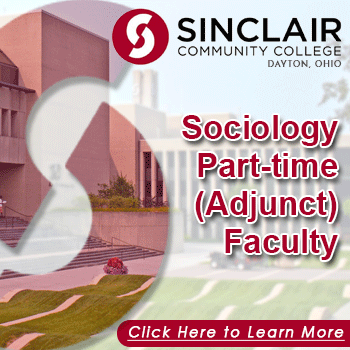This job has Expired
Research Technician Mouse Colony- Mitchell Lab
Job Description
Primary Work Address: Health Science Building, Seattle, WA, 98195-7370
Current HHMI Employees, click here to apply via your Workday account.
The Mitchell laboratory at the University of Washington is seeking a dynamic, driven, and meticulous Research Technician to join our group. The Mitchell lab investigates how innate immune sensors called inflammasomes mediate both protection and disease in response to diverse viral and bacterial pathogens. We are particularly interested in how evolutionary adaptations on both the host and pathogen side have changed these relationships over time, with the goal of demonstrating this information to generate improved mouse models of human infectious diseases. More information on the lab can be found on our website: https://mitchelllabuw.com/
We are looking for a highly motivated individual who is passionate about science and wishes to contribute to furthering our understanding in these newly emerging areas. This team member will be an integral member of the lab, working with a dynamic and diverse group of scientists in the areas of innate immunology, inflammasome biology, organoid and cell culture, and animal modeling of infectious diseases. This position will involve managing our mouse colony and providing experimental support for one or more postdoctoral fellows, and the candidate will need to be comfortable managing multiple priorities and their time. The successful candidate will perform tasks related to the research project independently while under the guidance and mentorship of the supervisor.
The Mitchell lab welcomes both entry-level mouse experience and more experienced applicants for this role.
What we provide:
A fun, positive, and inclusive research environment.
Training in microbiology, immunology, molecular evolution, and standard techniques in molecular biology, genetics, and cell culture.
Training in animal (mouse) husbandry, including IACUC training and AALAC certification.
Training in science writing and communication.
1:1 mentorship while also working collaboratively as part of a team.
Opportunities for professional and educational development and growth, including assistance in preparing for graduate school applications and interviews.
Contributing to exciting research projects with potential for authorship on research papers and the opportunity to present original work at scientific meetings.
Access to several vibrant Seattle research communities, including the University of Washington, the Fred Hutch Cancer Center, Benaroya Research Institute, Systems Biology Institute, Paul Allen Institute, and Seattle Children’s Research Institute.
A competitive compensation package, with comprehensive health and welfare benefits.
An opportunity to live and work in the vibrant and beautiful city of Seattle, Washington, amidst the natural wonder of the Pacific Northwest.
What you’ll do:
Perform experiments in molecular biology, immunology, and bacterial pathogenesis.
Manage multiple mouse lines, including mating, weaning, ear clipping, genotyping, and detailed record keeping in Softmouse.
Develop and optimize PCR- and probe-based genotyping assays.
Perform a variety of laboratory and investigative procedures with mouse models, including infecting mice, monitoring disease progression, harvesting, and processing of mouse tissues for bacterial burden quantification, quantifying immune and inflammatory responses, and imaging studies.
Culture and maintain ex vivo epithelial organoids of mouse and human origin. Culture and maintain mammalian cell culture lines, and use standard molecular biology techniques, including CRISPR technology, to modify genes in primary immune system cells.
Collect, verify, record and compile data and information in a detailed lab notebook.
Assist with experimental design and establishing new protocols and maintaining lab equipment.
Help with lab organization and other support duties relating to lab operations as required, while looking for ways to improve lab processes.
Participate in laboratory meetings and read literature applicable to the research area.
What you bring:
Bachelor's degree in life science, preferably with courses in molecular and cell biology and immunology or microbiology.
Background training and knowledge of molecular and cell biology techniques.
Prior experience working in a hands-on research lab for at least one year.
Tissue culture of mammalian cells and molecular cloning skills preferred.
Knowledge of basic laboratory practices and techniques.
Strong interpersonal skills, in addition to the ability to work both independently and as part of an interdisciplinary team.
Excellent analytical, communication, and computer skills, with attention to detail.
Strong self-motivation with excellent time management and organizational skills.
Passion for science and continuous education, actively seeking opportunities to increase skills and expertise.
Ability to learn complex tasks with instruction, and to use experience to perform a variety of new techniques.
Compensation Range:
Research Technician I (hourly) – $18.52 (minimum) - $23.17 (midpoint) - $30.08 (max)
Research Technician II (hourly) – $22.56 (minimum) - $28.22 (midpoint) - $36.66 (max)
Research Technician III (annual) - $54,510 (minimum)- $68,100(midpoint)-$88,500(max)
HHMI’s salary structure is developed based on relevant job market data. HHMI considers a candidate's education, previous experiences, knowledge, skills, and abilities, as well as internal equity when making job offers. Typically, a new hire for this position in this location is compensated between the minimum and the midpoint of the salary range.
Physical Requirements
Remaining in a normal seated or standing position for extended periods of time; reaching and grasping by extending hand(s) or arm(s); dexterity to manipulate objects with fingers, for example using a keyboard; communication skills using the spoken word; ability to see and hear within normal parameters; ability to move about workspace. The position requires mobility, including the ability to move materials weighing up to several pounds (such as a laptop computer or tablet). Work may involve possible exposure to malodorous vapors, low dose radiation, contamination by toxic chemicals and acids and presence of carcinogenic substances or other hazardous materials.
Persons with disabilities may be able to perform the essential duties of this position with reasonable accommodation. Requests for reasonable accommodation will be evaluated on an individual basis.
Please Note:
This job description sets forth the job’s principal duties, responsibilities, and requirements; it should not be construed as an exhaustive statement, however. Unless they begin with the word “may,” the Essential Duties and Responsibilities described above are “essential functions” of the job, as defined by the Americans with Disabilities Act.
Compensation and Benefits
Our employees are compensated from a total rewards perspective in many ways for their contributions to our mission, including competitive pay, exceptional health benefits, retirement plans, time off, and a range of recognition and wellness programs. Visit our Benefits at HHMI site to learn more.
HHMI is an Equal Opportunity Employer
*Please mention you saw this ad on AcademicJobs.*




